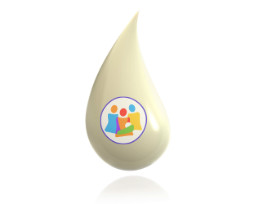Jaundice in the Newborn
Jaundice, which is a yellowish discoloration of the skin, is extremely common in infants during the first week of life. Jaundice is due to a buildup of a substance called bilirubin in the blood stream. Newborn bilirubin levels are normally elevated after birth and usually do not cause any issues. Breastfed infants are prone to higher bilirubin levels than formula fed infants. A few medical conditions can cause the bilirubin level to become higher than usual. For this reason, all newborn babies have a bilirubin level checked at approximately 24 hours after birth. If the bilirubin is too high, your baby’s doctor may recommend therapy. The most common treatment is phototherapy (light therapy) either at home or in the hospital, depending on the severity.
What are the most common health conditions that cause a higher than average bilirubin level in breastfeeding newborns?
1. Low breastmilk intake- when a breastfed infant does not ingest enough breastmilk volume, the bilirubin in the blood stream has difficulty leaving the body. Increasing breastmilk intake helps to prevent this, by nursing the newborn very often, such as 8-12 times a day.
2. Breastmilk jaundice- This is jaundice that tends to persist beyond the second week of life, often into the 3rd or 4th month. This is a genetic condition related to low activity of an enzyme in the liver and intestines that helps get rid of bilirubin. Both breastfed and formula fed infants may have low enzyme activity, but formula helps to activate the enzyme, preventing jaundice. This is why sometimes doctors recommend formula for 24 hours to resolve the jaundice. However, we know that supplementing with formula is not necessary, as this is not typically a harmful condition. The doctor might recommend light therapy to help bring the jaundice down.
3. Blood type incompatibility- A difference in blood types between the birth parent and the newborn can cause newborn jaundice. The treatment is usually light therapy if the bilirubin becomes high enough.
4. Bruising at birth- some babies bruise a fair amount during the birth process. As the body heals the bruises, the bilirubin, a byproduct of the red cells in the bruises, increases, causing jaundice.
5. Other less common causes of newborn jaundice include infection, G6PD deficiency, spherocytosis, and liver problems. These more unusual causes can be diagnosed by the physician through physical exam and blood tests.
How can I decrease the risk of my newborn becoming jaundiced?
Newborn babies should breastfeed eight to twelve or more times per day. Make sure to feed your baby when they are
asking to be fed and that they are feeding at least every 3 hours until they get back to their birth weight.
Can I breastfeed if my baby is on phototherapy?
Yes! It is important to breastfeed regularly, at least 8-12 times a day, while undergoing light therapy.


